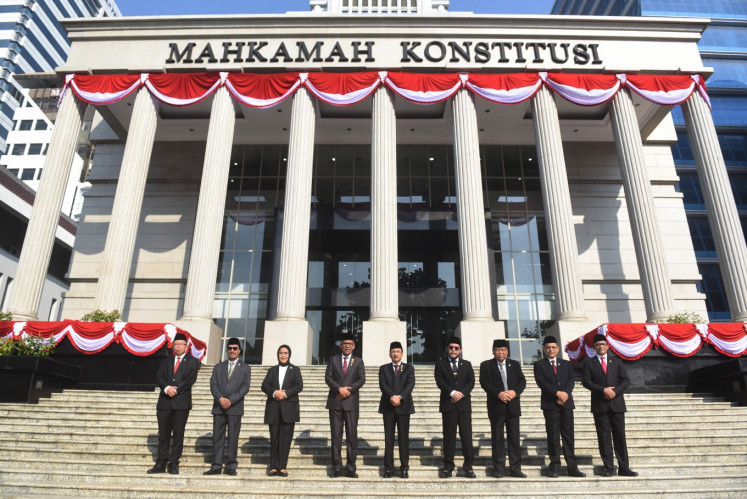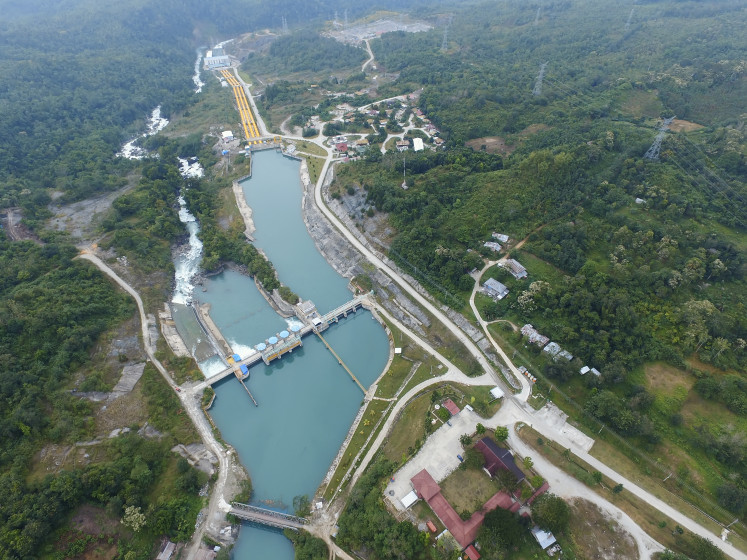Popular Reads
Top Results
Can't find what you're looking for?
View all search resultsPopular Reads
Top Results
Can't find what you're looking for?
View all search resultsRI banks not ready for ASEAN turf, says BI
Indonesian banks are not yet ready to compete head-to-head with their counterparts in Southeast Asia due to the lack of capital and inefficiency in their operations, a top official at Bank Indonesia (BI) says
Change text size
Gift Premium Articles
to Anyone

I
ndonesian banks are not yet ready to compete head-to-head with their counterparts in Southeast Asia due to the lack of capital and inefficiency in their operations, a top official at Bank Indonesia (BI) says.
“If ASEAN banking integration were to begin now, we would lose due to our banks’ low capital and general operational inefficiency,” BI Deputy Governor Halim Alamsyah said on Monday at the central bank’s headquarters in Jakarta.
He attributed this to the fact that Indonesian banks still had high cost-to-income ratios (BOPO), a measurement of a bank’s efficiency, which stood at 74.26 percent as of September, according to BI data.
For comparison, the average cost-to-income of banks in other Southeast Asian nations ranged from 40-60 percent, meaning banks in neighboring countries were more efficient in their operating practices and could generate higher incomes with lower costs.
“Very few of our banks have a BOPO of below 70 percent, meaning they are not competitive,” said Halim.
“This is a very serious situation for us. Bank Indonesia is currently racing against time to boost capital and improve efficiency among [Indonesian] banks. Strong capital and efficiency, after all, are the two factors that can improve our banks’ competitiveness,” he added.
As part of the blueprint of the ASEAN Economic Community (AEC), central bankers in Southeast Asian countries are currently discussing a financial integration system that aims to eliminate banking barriers in its member countries.
The system, scheduled to take place as early as 2020, will allow certain banks to expand into other Southeast Asian countries with ease if they meet the requirements of the so-called qualified ASEAN banks (QABs), a kind of single “passport” for regional expansion.
Indonesia’s central bank introduced on Nov. 23 a package of new banking regulations that many said reflected its commitment to strengthening the domestic banking system in preparation for ASEAN’s banking integration.
Among the unveiled regulations is a multiple license policy, in which BI classifies banks into four categories based on their core capital. BI will allow a bank to compete at the regional level only if it stands in tier three (core capital of between Rp 5 trillion and Rp 30 trillion), while a bank can compete at both regional and international levels if it is in tier four (core capital of more than Rp 30 trillion).
“Having sufficient capital is imperative for our banks to remain competitive. I predict that Indonesia will see a great wave of banking consolidation as [ASEAN’s banking integration] in 2020 draws closer,” Ryan Kiryanto, the chief economist at state-run Bank Negara Indonesia (BNI), said on Monday.
“We can do it. There are still eight years left for us to prepare.”
Earlier, a number of large Indonesian banks said they met all the requirements to compete, particularly in Singapore, if BI managed to negotiate a less-protectionist stance from the city state’s central bank in exchange for easing the planned takeover of Bank Danamon by Singapore’s DBS Group Holdings. (sat)









